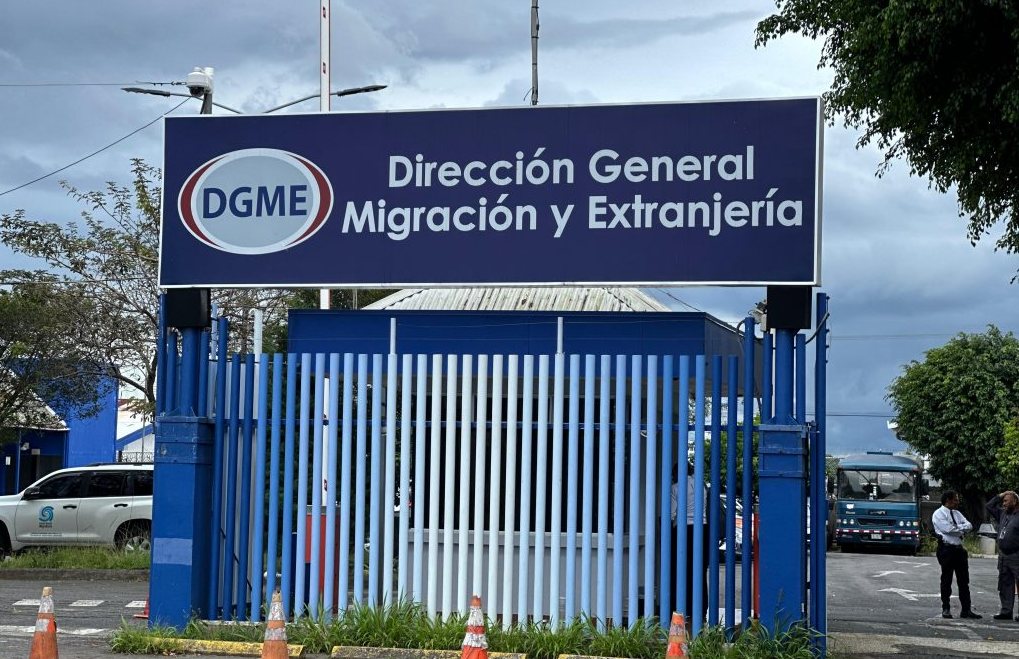The president of El Salvador, Nayib Bukele, voted this Sunday in elections where he expects to achieve reelection without surprises, thanks to his popular but controversial “war” against gangs.
Wearing a white cap, jeans and a light blue shirt, the color of his New Ideas party, Bukele went to vote, along with his wife Gabriela Rodríguez, at the polling stations installed on Olympic Avenue, in the west-central part of San Salvador, amidst a multitude of supporters. “Five more, five more,” his followers shouted.
Bukele, a 42-year-old former publicist who enjoys overwhelming 90% popularity, has no heavyweight opponents threatening his second term and could even annihilate the opposition in the new 60-seat Congress, which he already comfortably controls.
Some 6.2 million Salvadorans (740,000 abroad) are called to vote until 5:00 pm local time (11:00 pm GMT) in these elections monitored by thousands of military and police, and for the first time under a state of exception since the end of the civil war in 1992. By mid-afternoon, lines were forming at some polling stations in the country, and in cities like Madrid and New York.
Relieved by the tranquility that came to their neighborhoods once taken over by the violent Mara Salvatrucha and Barrio 18 gangs, Salvadorans applaud Bukele’s “iron fist” policy, even at the cost of some civil liberties.
“Security has improved, before not just anyone could be here. I hope this continues and the economic situation improves,” said Santos de Martínez, a 66-year-old housewife, after voting in La Campanera (northeast of San Salvador), once a bastion of Barrio 18.
After a bloody weekend with 87 deaths, in March 2022 Bukele imposed a state of exception that has led to nearly 76,000 arrests and reduced murders to historic lows (officially 2.4 per 100,000 inhabitants in 2023) in what was once the country with the highest rate of criminal violence in the world.
But organizations like Amnesty International and Human Rights Watch denounce arbitrary arrests, torture and deaths in prison. Some 7,000 innocent people have been released, but many others remain imprisoned without being able to communicate with their families.
If this is not a dictatorship…
His power is immense. Bukele, of Palestinian descent and who mocks his critics who call him a “dictator,” also controls, in addition to parliament, the judiciary and the rest of the state apparatus.
“There has to be equity, there has to be debate (…) because it cannot be that we have… damn it! If this is not a dictatorship…” said Mario Delgado, 68, after voting. Magistrates renewed by that Congress interpreted the Constitution in his favor and, despite reelection being prohibited, allowed him to run again, which analysts and opponents consider unconstitutional.
The opposition is in serious trouble. Their five candidates barely appear in the polls, including those from the leftist Farabundo Martí National Liberation Front (FMLN), Manuel Flores, and from the right-wing Nationalist Republican Alliance (Arena), Joel Sánchez.
“He will have enough time to consolidate a hegemonic party dynamic,” said political scientist Álvaro Artiga from the Central American University (UCA).
Very confident of his re-election, the most popular president in Latin America according to a regional survey, did not even ask for the vote for himself, but for his New Ideas party – currently with a supermajority in parliament – so as not to “risk the war against gangs.”
The economic challenge
This social media savvy millennial who wears jeans and sweaters, with a well-groomed beard and gelled hair, came to power in 2019 with 53% of the vote promising “change” to a population fed up with the Arena-FMLN bipartisan system that did not solve security and poverty problems.
“After security, now we are concerned about the high cost of living, that is the great challenge,” said former Central Bank President Carlos Acevedo.
Twenty-nine percent of the 6.5 million Salvadorans living in the country are poor, according to ECLAC, and many continue to emigrate to the United States in search of work. Some 3 million live abroad and send $8 billion a year in remittances, vital for the local population. “In addition to security (…), young people expect better opportunities,” said 20-year-old Isabel Argueta on Olympic Avenue.
Even with all his popularity, the president failed to get Salvadorans to use the bitcoin that he imposed in 2021 as legal tender in a dollarized economy, according to him, to boost it.
With between five and seven million followers on X, Tiktok, Instagram and Facebook networks, Bukele, father of two girls, also promotes megaprojects and tourism in “the safest country in Latin America”.
Source link
Tico Times



